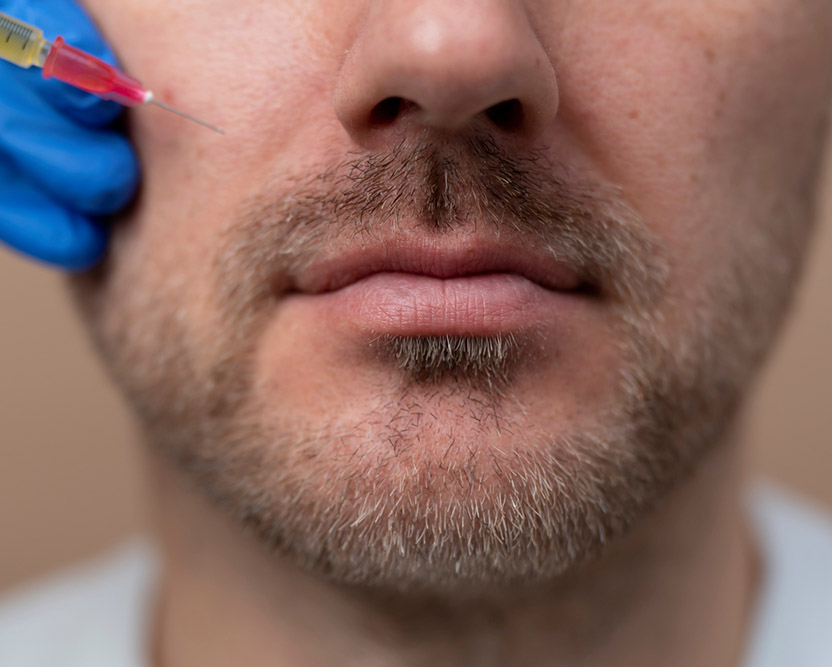
Beard alopecia - Causes and treatment
Beard alopecia, also known as beard hair loss, can occur in men at different times of life. It can be caused by a variety of factors, including hormonal changes, stress, genetics, certain medications, and medical conditions.

What are the causes of beard alopecia?
Hormonal changes can be one of the causes of hair loss on the chin. In men, hair loss on the chin can be linked to increased levels of the hormone DHT, which leads to excessive shedding of the scalp.
Stress can also affect hair loss, including beard alopecia. When we are under stress, the body produces more of the hormone cortisol, which can lead to damage to hair follicles and accelerated hair loss.
Heredity plays a big role in hair loss, including beard hair loss. If your parents had problems with hair loss, it is likely that you too will face this problem at some point in your life.
Certain types of medications can also cause hair loss, such as blood pressure medications, antidepressants, cancer medications, and heart disease medications. If you experience hair loss after taking these medications, contact your doctor to determine if the hair loss is related to these medications and if their dosages can be adjusted.
What does the treatment of beard alopecia look like?
Treatment for beard alopecia depends on the cause of the hair loss. If the cause is hormonal, treatment may include hormone therapy or drugs that reduce the new DHT hormone.
If stress is the cause, treatment may include working with a therapist and taking certain medications to reduce stress and improve mental health.
When a hereditary factor is the cause of beard alopecia, then treatment may include the use of hair care products or laser therapy to improve hair growth.
However, all these methods give poor results and permanent treatment is eventually performed by transplanting or transplanting beard hair. This procedure involves taking hair follicles from one part of the body and transplanting them to the area where the hair is missing.
Choosing the right treatment for beard alopecia depends on the cause of the hair loss and the individual needs of the individual. In order to choose the best treatment method, it is best to visit a specialist doctor who will help you determine the cause of alopecia and suggest available treatment methods.












